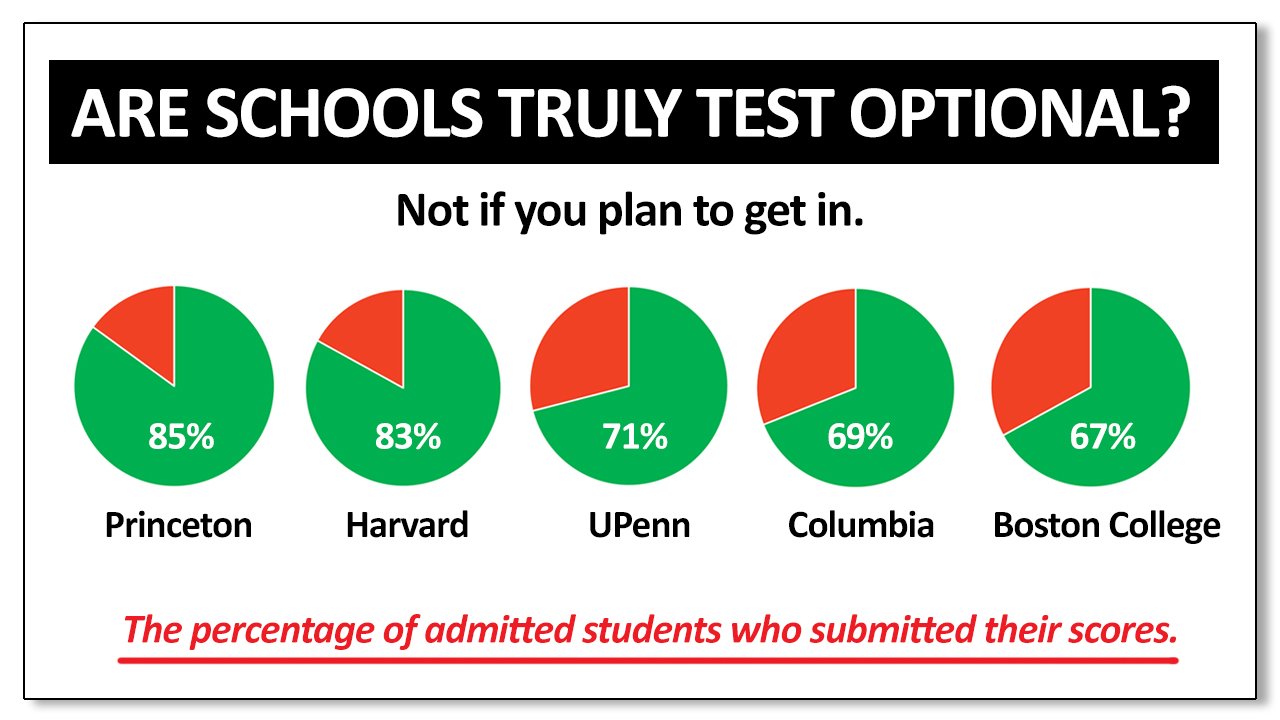Admissions Trends for 2024/2025
What’s new in college admissions?
There are four big trends we’re seeing for the 2024/2025 application cycle and the foreseeable future. Some of these trends started years ago and have only gotten stronger. And others are new. Let’s get into it.
#1: It’s getting harder and harder to get into good colleges.
This may not come as a surprise to many, but there’s clear evidence that getting into a top university is considerably harder than it was just a few short years ago. In fact, when we look at admissions data starting 20 years ago, we see a steady, precipitous decline in admissions rates across the board at competitive colleges, both private or public. In the chart below, we took a snapshot of the admissions rates at six competitive colleges from 2006, 2018, and 2023. You can see a clear drop in admissions rates at all of them. And these colleges are not alone; they are typical of the same pattern we’re seeing at the Top 50+ universities all across the country.
The numbers say it all.
Whether you look at Harvard, NYU, Duke, Carnegie Mellon, Boston College, or Tufts, you see a rapid decline in admissions rates over the last 20 years. In fact, it’s now reached the point where it’s actually twice as hard to get into one of these schools than it was just 20 years ago. Part of this has to do with the record number of applicants these colleges are getting, which is largely the result of their test-optional policies. And part of it is that the quality of applicants has skyrocketed: 20 years ago, a high school student who did independent research and got published in a scientific journal was a shoo-in for Harvard; now they’re struggling to get into tier-two schools.
#2: The SAT is making a big comeback.
In early 2024, Dartmouth announced that it was once again going to require the SAT or ACT for all first-year applicants, joining the ranks of MIT, Georgetown, Georgia Tech, Univ. of Florida, Purdue, and a handful of other schools. Soon after, Yale announced that it too would require standardized test scores, though it gives students the option to submit all of their AP or IB scores in place of the SAT. What other schools now require the SAT or ACT? Harvard, Brown, Caltech and UT Austin. And both Stanford and Cornell will be test-required starting in Fall 2025. Expect more universities to follow this trend.
Why the change of heart?
Two separate studies — one a joint study by Dartmouth and Brown, and one by Yale — both came to the same conclusion: SAT/ACT scores are the single best predictor of college success. When they looked at a variety of metrics, they found that a student’s SAT/ACT score was the best predictor of the student’s grades in college. They were a better predictor than the student’s grades in high school, the student’s teacher recommendations, or even the quality of the student’s application essays. Presumably this is because there’s a lot of grade inflation at many high schools, teachers may stretch the truth, and many students get help writing their college essays.
While it’s likely that more colleges will start requiring standardized test scores, it’s also likely that those who remain test-optional will look at them more closely, knowing they’re such as strong indicator of college success.
What about test-optional schools?
While many colleges like to say that they’re test optional, the data tells a different story. While it’s true that roughly 50% of applicants to top universities don’t submit their standardized test scores, when you look at who actually gets in, the evidence is clear: the vast majority of admitted students submit their test scores.
At Princeton, for example, you’re more than welcome to apply without submitting your SAT scores. Colleges love getting more applications, and it even drives down their admission rate, a crucial metric of their prestige. But 85% of students admitted to the Class of 2026 submitted either their SAT or ACT. That’s more than 4 in 5. Yes, there was a small percentage of “outlier” students who got admitted without their scores (15%), but remember, that probably includes: recruited athletes, children of faculty, legacies, children of large donors, etc. In other words: probably not you.
Even at slightly less prestigious colleges like Boston College — which is an excellent college, but not quite as competitive as Princeton — 67% of admitted students submitted their test scores. These figures are similar at other competitive universities. So here’s the bitter truth: If you don’t submit your test scores, you’re far less likely to get in. And the more prestigious the school, the more submitting your scores will help. Best advice: sign up for test prep, take it seriously, and submit those scores.
3: You need a clear and compelling application theme.
Gone are the days when you could get into a top school just by being generally awesome: you know, a good student who did a bunch of impressive stuff. Now, you have to have a focused brand. And it should read like this: “I’m an academic scholar who also excels at X.” The academic scholar part is obvious: you need to get top grades taking the most rigorous courseload you can handle. But good grades aren’t enough anymore. You also need to excel at something outside of the classroom. And the more uncommon your achievement, the better. And the bigger impact your accomplishment has had on your community, the better.
You can learn more about extracurricular achievement here.
4: You need outstanding essays.
Every year, thousands of exceptionally qualified candidates don’t get into their top-choice colleges because their essays were dull, uninspired or lazy. We’re talking about students with straight A’s and a perfect 1600 on their SAT. The reason is that academic scholarship is not enough. And even extracurricular achievement isn’t enough. Colleges want to get excited about you. They want to hand-pick a collection of inspiring students who have energy, charm, passion, interesting backgrounds, and immense promise. Just because you’re book-smart doesn’t mean you’re interesting, or someone they’re dying to have on their campus.
Your essays are your single best chance to convince them that you have a zest for life, a passion for knowledge, and a stomach for adventure. You need to tap into the best version of yourself, and win them over.
You can read more about crafting better college essays here.
No, you’re not crazy: it truly is much harder to get into top universities than it was just a few short years ago.
The same exceptional students who would have been a shoo-in for Ivy League universities 20 year ago are now struggling to get into Tier-2 and Tier-3 colleges.
NYU is now twice as hard to get into than it was just 20 years ago.
Dartmouth (pictured) and Yale have recently decided to require standardized test scores again, and more schools may follow.
While you can submit an application to Boston College without your SAT or ACT scores, it’s much harder to get in that way.
Your application needs a clear and compelling theme, such as: “I’m an academic scholar who designs seeing-eye robots for the blind.” Seriously, those are the students you’re competing against.








